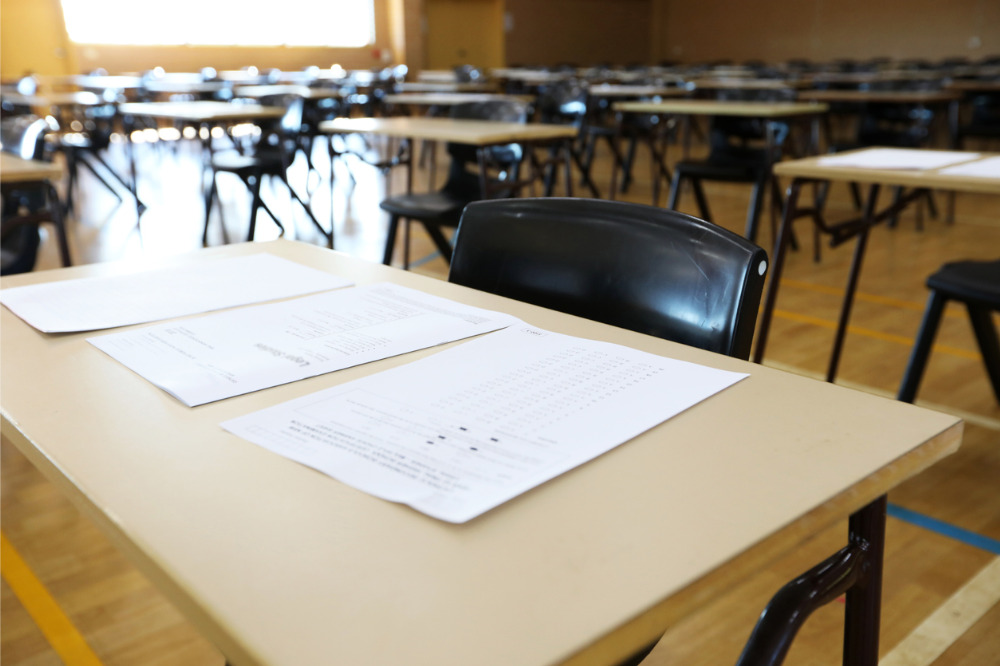
This week, thousands of masked-up VCE students sat their exams after returning to school for the first time in months.
Currently, more than 76,000 NSW students are preparing to sit their HSC exams on 20 October along with SA students studying for their SACE exams on the same date. For Queensland students, they’ll be sitting their QCE exams the following week.
For these senior students and those elsewhere across Australia, prepping for their end of year exams this year has been a challenge unlike any other they’ve collectively faced.
A report in May revealed that four in five students feel disadvantaged for their HSC under COVID-19 restrictions, highlighting the impact of the pandemic on senior year students.
While the news that end-of-year exams would go ahead in this year has been welcomed, there are concerns about the toll that the government-enforced lockdown may have on students’ learning not just now but in years to come.
In the meantime, students are focused on doing the best they can despite the turmoil they’ve experienced. Indeed, their ability to stay calm and focused will be critical to their performance during this critical time in their education.
‘Adaptability will be key’
Andrew Martin, Scientia Professor and Professor of Educational Psychology at UNSW Sydney, was recently named the global leader in the field of Educational Psychology and Counselling.
He says that adaptability will be key for Year 12 students in the midst of change and unpredictability.
“Heading into Year 12 exams—and beyond—it will be important for students to be adaptable,” Professor Martin said in an article published in the Media Centre for Education Research Australia (MCERA).
“There are three parts to adaptability that can help students to achieve better educational outcomes”.
Professor Martin said the first of these parts is behavioural adaptability.
“This means making some adjustments to your behaviour. For example, you might seek out help when you normally wouldn't, look for new resources, or refine your study timetable so you can concentrate better,” he explained.
“The second is attitudinal adaptability, which is thinking about things in a different way. For example, changing your thinking or mentally re-framing things as best you can if there is a disruption or new demand during study”.
The third part of adaptability, says Professor Martin, is emotional adaptability.
“This is about adjusting your emotions,” he said.
“This often means managing your disappointment or fear when things change or you experience situations you hadn’t anticipated, such as an unexpected exam question”.
Exams aren’t the ‘be all and end all’ of schooling
Another prominent education expert, Dr Rachael Jacobs, a lecturer in Creativity and Arts Education at Western Sydney University, says assessment in schools has become “less about tests and scores and more about setting tasks that give us a true picture of what a student can do”.
“In the arts, for example, there might be some exams, but a majority of the assessment tasks are performed throughout the year requiring students to create artworks, performances, explain their creative process or show their working in a logbook or portfolio,” she said.
"These tasks often have way more value than simple rote learning or recall because life outside of school is rarely like a multiple choice test or an exam”.
Dr Jacobs said students are now encouraged to work collaboratively, mirroring the work they may do in the workplace or at university or TAFE.
“We also want our students to take personal responsibility for their learning throughout the year, rather than cramming for exams at the end,” she said.
Her advice for families and parents is to support their child by encouraging them to draw on the work they’ve done all year.
“Learning tricks for exams or formulaic responses rarely works for most subjects, so instead, you can ask them exam style questions over dinner in a conversational style,” she said.
“Ask them to speak their response out loud to you and acknowledge how much progress they’ve made”.
Dr Jacobs said students can write what they said into dot points to make a list of what they know, and they can add to it to create study notes.
“Finally, remind them that exams are just one measure of their success. They also have their assessment results throughout the year, and there are many pathways to success if they don’t get into their chosen field right away”.


